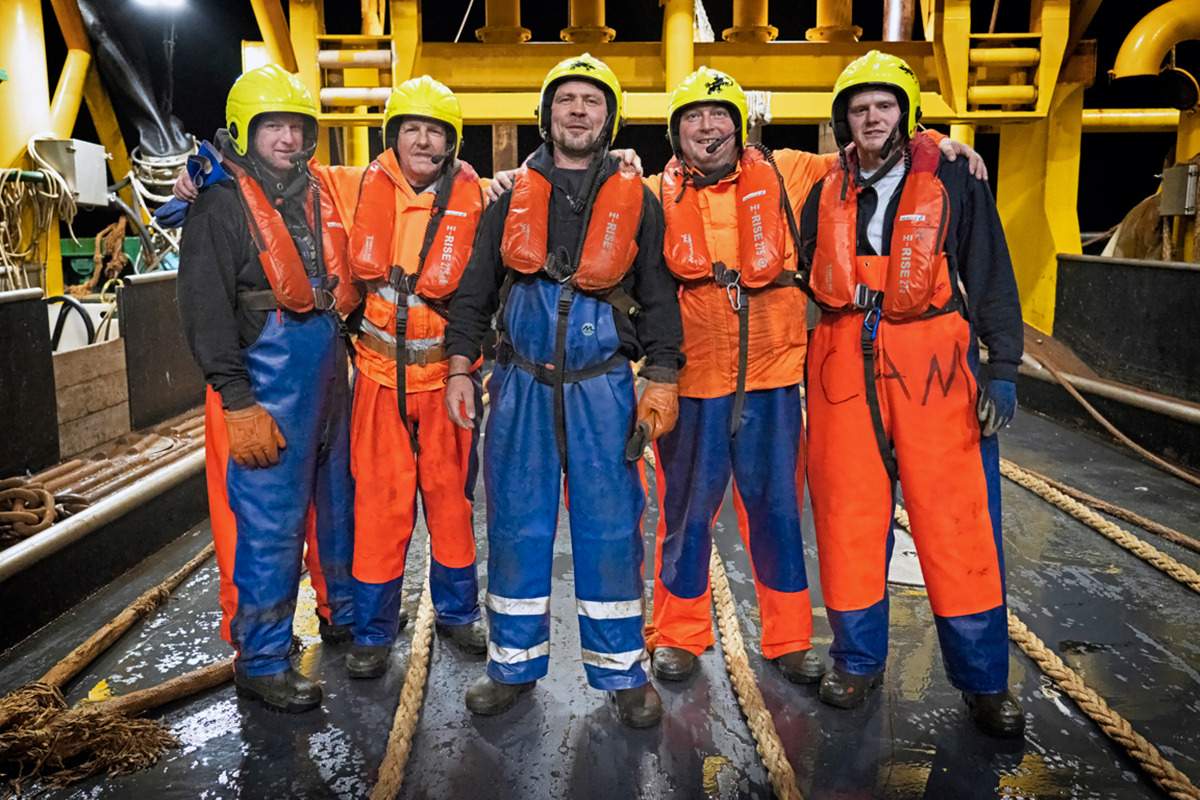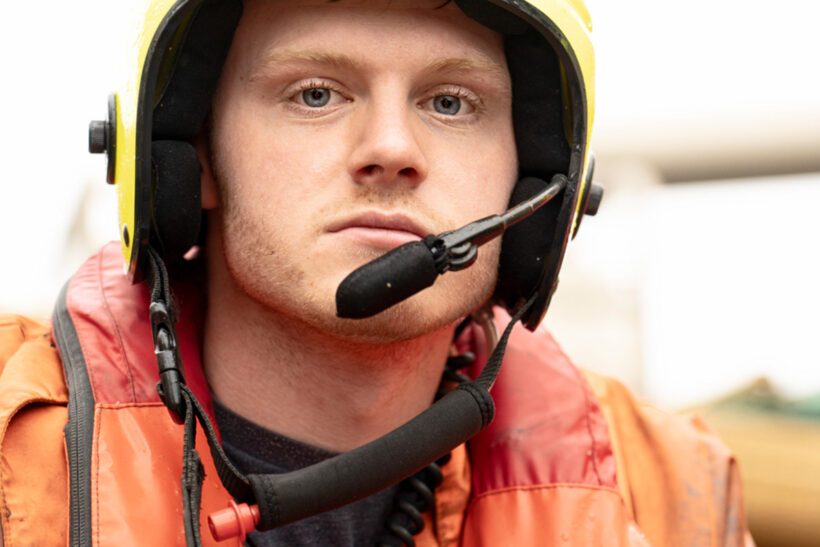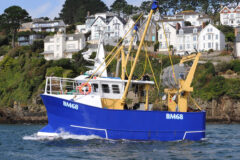“Fishing has been a part of my life since day dot,” Cameron Day, a deckhand with the North Atlantic Fishing Company (NAFCO) told Fishing News. “That meant I knew a lot about where a career at sea could take you, although it was never mentioned as an option at school.”
NAFCO owns and operates UK-registered pelagic freezer trawlers that fish for four main species: mackerel, herring, horse mackerel and blue whiting.
The company runs its own cadet programme, with the aim of equipping the next generation of fishermen with the skills needed for fishing now, and into the future.
Twenty-three-year-old Cameron joined the NAFCO in 2018 as an apprentice deck officer cadet, and is now about to take his final exam to progress to mate.
“Having been around fishing as a kid, the seafaring life always appealed to me. Aged 15, I enrolled in a three-week introduction to fishing course in Hull, taught by my dad. I loved it and knew it was the path I wanted to pursue.
“My first real break was this industry-first apprenticeship. It made me fall in love with the work and lifestyle, which blended theory-led coursework with practical experience at sea.
“Once I’d learnt the ropes, I qualified as a deckhand and embarked on a full-time role with NAFCO. Always looking to progress through the ranks, I’ve continued to learn as much as possible, and I’m currently building up my experience and training to help me advance to the next role.”
Cameron is currently working as a deckhand on the Frank Bonefaas H 72, where his role combines a range of deck and bridge work, ensuring all navigational, communications and fishing equipment is working as it should.
“The vessel is 118m long – it needs to be so big as it’s a fishing vessel, factory and a freezer warehouse that operates out at sea. It can process up to 250t of fish per day, and has 3,500t capacity in cold store – which is equivalent to 7m fish meals!
“My usual day onboard starts out on deck, checking to see if any maintenance jobs need doing. Net work and splicing are regular tasks of mine – I ensure all the ropes and nets are in proper working order before and between catches.
“I also shoot and haul the nets, and work on learning to use the crane powerblocks, which handle the nets. It’s a core skill as I advance in my career.
“Once the fish comes onboard, we pump it into the tanks. The fish are sent to the factory, sorted, and taken to the buffer – a holding tank. It’s then frozen at -30°C and stored, ready to be landed back ashore.
“We always make sure there are at least two people – an officer and a watcher, always working six-hour stints – on the bridge.”

Cameron (right) and crew mates on the trawl deck of the Frank Bonefaas. “Good communication is a key part of the job, and we have a variety of protocols to ensure safety at sea. Everyone wears lifejackets and reflective and warm clothing,” he said. “We also have helmets with built-in communication systems – something that is vital onboard a large vessel. This way, we can look out for each other and flag any potential dangers when the weather takes a turn.”
Despite the challenges that life at sea can sometimes present, Cameron says he loves what he does. “You have to get used to a different sleeping pattern, especially up on top deck. The first time you go out can be tough, missing family, birthdays and other life events. But you get used to it as time goes by and start to really appreciate your time on land!
“Because we are out at sea for lengths of time, the vessel becomes a home away from home. We share a room with one other person, and you can build tight bonds with the crew in the dorms, who become a second family.
“One of my favourite things about being a seafarer is seeing the world and experiencing a camaraderie with your colleagues that you just don’t get with onshore jobs.”
The cadet programme has given Cameron not only a job he loves, but also the opportunity for a lasting career. “A career at sea is fantastic, and more people should consider it. Unfortunately, the fishing industry is quite misunderstood.
“A lot of people think you’ll always be out on deck in the pouring rain with little opportunity to progress. But you can actually build a fantastic career and progress very quickly through skipper and mate’s tickets, or take on an engineering role.
“I have recently completed a three-month shore-based theory course at Peterhead, and am now in the process of learning how to work on the bridge ahead of my final oral examinations, to progress to the next stage of my career as Class 2 Second Mate.
“I’m looking forward to continuing to learn as much as I can from classroom-based learning, experience and from the knowledge of those around me.
“I am excited to see where my career will take me.”
This story was taken from the latest issue of Fishing News. For more up-to-date and in-depth reports on the UK and Irish commercial fishing sector, subscribe to Fishing News here or buy the latest single issue for just £3.30 here.
Sign up to Fishing News’ FREE e-newsletter here.






